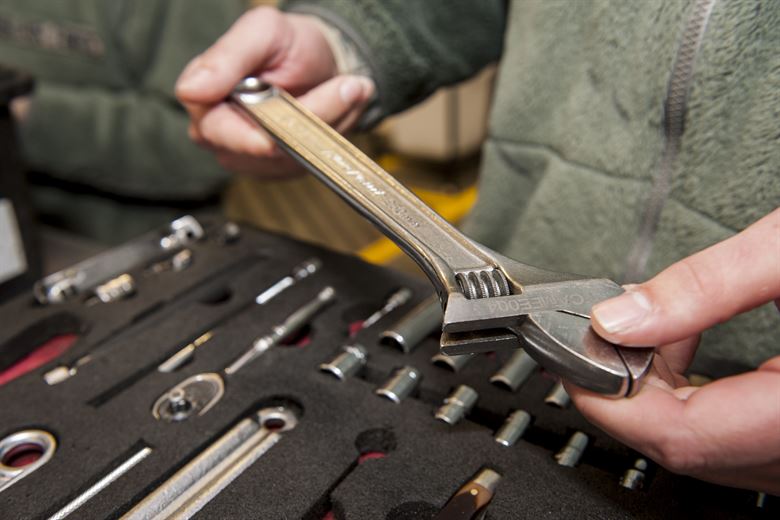If your job involves you working with tools, then it’s imperative that you take care of the tools you use each and every day. Your livelihood depends on it! That said, it’s equally important to take care of them if you’re just a general DIY enthusiast at home; in the event of a disaster (imagine burst pipes or collapsed flooring), then you need your trusty toolbox to be in the best condition possible.
With all that in mind, we’ve written this article as a guide to take better care of your tools. With the right TLC, you can extend their life and keep them in the best possible condition for longer. Here goes!
Clean your tools after using them
We’re sure that the last thing you want to do after finishing your work is clean up, but we guarantee that it’s one of the best ways that you can take care of your tools. If you can make a habit of doing it so it doesn’t feel too laborious, then this is the way to go. All you need to do is give them a quick wipe down and you’re good to go.
Try not to scrimp on your most important tools
Like anything, you get what you pay for. If you’re on the lookout for a tool you know will become one of your most used pieces, then don’t get too bogged down with finding a bargain. Instead, do your research and look at it like an investment. With a high-quality, long-lasting tool you’ll be able to do some of your best work for longer (providing that you take care of it, which after reading this article we’re sure you will).
Keep a vigilant eye out for rust
Your toolbox’s number one enemy is rust, and it gets everywhere. This is why you should clean tools after every use, because you may not notice that water/moisture can get into the internal mechanisms of your tools. Suffice to say that, left overnight, this can cause havoc to the metallic elements of your tools. The same goes for blades, various steels and metals. There are also plenty of balms and conditioners that you can get which will ward off rust and corrosion (there are also oils which the metal parts of your tools will appreciate).
Repair your tools and avoid waste
In this sense, tools are like clothes: if they’re a little past their best, you can still salvage them! For example, if a drill is working a little sluggish then that’s no reason to throw it out and buy another. Instead, take it to a repair shop (or have a look yourself if you are confident enough!). This is another great way to extend the life of your tools.
Get some silica gel packs… trust us!
You know those strange sachets of ‘silica’ that you get with a new pair of shoes? Throw a few into your toolbox and you’ll see how effective they are at keeping moisture away. Like we said, rust and corrosion will often spell the end for your tools, so you need some preventative measures to ensure you have them for as long as possible.
Do regular inspections of your tools
Another preventative measure is to give your tools a good inspection, maybe once or twice a week. This way, you can ensure the safety of your tools as well as their continued performance. You’ll soon know the condition of your tools like the back of your hand.
Here’s what you should look out for:
- Loose or cracked handles. If you notice that a handle to one of your tools is loose, then it’s bound to cause an accident sooner or later. What if it came loose while you were using the tool and the tool flew off into your workmates’ direction? It doesn’t bear thinking about. This is an important thing to look out for.
- Chisel heads ‘mushrooming’. The term ‘mushrooming’ refers to the end of a chisel or wedge (it can happen to bigger nails too) when it changes shape due to overuse. What was once a sharp, straight edge has become dulled and blunt. If you continue to use tools that visibly need sharpening, at some point they’ll simply shatter. Again, this could be dangerous for those nearby.
- Power tools that struggle when you turn them on. If a power tool seems to struggle and chug into action when you turn it on, then it may be past its best. If you need to give it a ‘quick knock’ to get going then something is definitely wrong. Clean it, make sure nothing is stuck in the tool’s mechanisms, and try it again. Like we said earlier, repair shops are a good option too.
Keep your tools away from humid environments
As moisture quickens the rusting process, you need to keep your tools as dry as possible. This has a lot to do with storage, which we’ll get to shortly, but it all starts with giving tools the right environment. Lots of garages have damp air environments, but keeping them safe and secure in a toolbox will do the trick.
Most importantly: store your tools properly for continued performance
There are various storage solutions for tools, but the one we’d recommend most is custom cut foam. Whether this is for your spanners or your power tools, custom foam inserts are made exactly to your specifications and they keep your tools dry, safe, and protected.
They also help with tool organisation, which is a huge part of extending their quality and condition. Whether you’re on a job or just doing DIY at home, tool organisation speeds the process up because you know which tools you need, and where they are. That’s the secret to being a good handyman.


